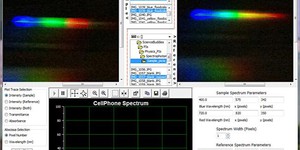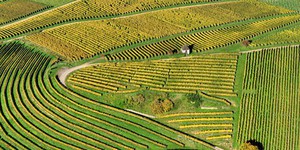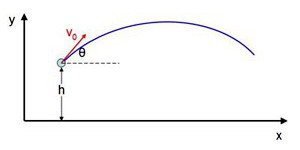Others Like “Point, Click, Shoot! Photography with a Pinhole Camera” (top 20 results)
|
A video camera records 30 "frames" or distinct images per second. (That's for an NTSC camera in the U.S. PAL cameras in other areas of the world take 25 frames per second.) You can use this fact to time events and measure speed. One student has used a video camera to measure the speed of an arrow shot from a bow. The following project can help you set up your experiment: Distance and Speed of Rolling Objects Measured from Video Recordings.
Read more
You can compare the picture quality for photos taken at different shutter speeds with the camera handheld vs. with the camera on a tripod. (This is best done with a camera that has manual exposure control.)
Read more
Compare the strengths and weaknesses of different digital image formats. How does the amount of compression affect a JPEG image? What happens when you save a JPEG image multiple times?
Read more
You may have seen police investigators on TV spraying a crime scene with a liquid that glows blue if there is any blood present. Luminol is the chemical which causes the glowing. In this chemistry science fair project, you will investigate what factors make this interesting molecule "light up."
Read more
Make a pinhole projector (see Measuring the Diameter of the Sun and the Moon). Use the pinhole to project an image of the Sun onto a wall or a piece of paper. Do you notice any dark spots on the projected image? Trace the projected image and count the dark spots. Use your pinhole projector to make images of the Sun at the same time of day for several consecutive days. How does the pattern of spots change? Can you use your data to figure out how fast the Sun rotates? Sunspot activity rises…
Read more
This project is an experiment in classical physics. You'll be following in Galileo's footsteps, and investigating Newton's laws of motion, but you'll be taking advantage of modern video recording technology to make your measurements. Sure, it's been done before, but if you do it yourself, you can get a firm understanding of these important concepts.
Read more
We encounter an amazing array of colors every day, from the greens of plants and the many colors of their flowers, to the pinkish blue of a sunset, to the artificial coloring in beverages. How do we perceive all of these colors? When light hits an object, some of that light is absorbed by the object, and the light that is not absorbed is what we see. In this science project, you will build a simple spectrophotometer from a cell phone and use it to investigate how visible light is absorbed by…
Read more
As we humans zip from place to place, we often forget to stop and smell the roses. Compared to our fast-paced lifestyle, plants seem rooted to the spot. Don't be deceived by appearances however, plants are on the move! This experiment will investigate the stimulus/response relationship in plants and prove that plants can move up and down in response to gravity.
Read more
Wondering what sustainable, high-producing agriculture might look like? This science project explores how analyzing bird's-eye-view pictures of a field can make farmers aware of variations in their fields. Farmers can use this information to optimize their farming practices, or even feed this information to high-tech agricultural equipment so the machines can automatically adjust their actions (like fertilizing or watering) to the needs of a piece of land.
Read more
In physics class, you have probably rolled your eyes at some point after being assigned a "projectile motion" homework problem where you use equations to predict how a ball will move through the air. This experiment will show you just how fun that problem can be by using a real catapult to launch a ball and videotaping it as it flies along its path. Then, you will analyze the video and compare it to what the equations predicted. If you have ever wondered if those equations in your physics…
Read more
|
Explore Our Science Videos
Hydroponics in a 2-Liter Soda Bottle – STEM activity.
Raspberry Pi Adaptive Game Controller
Model a Lung Infection









